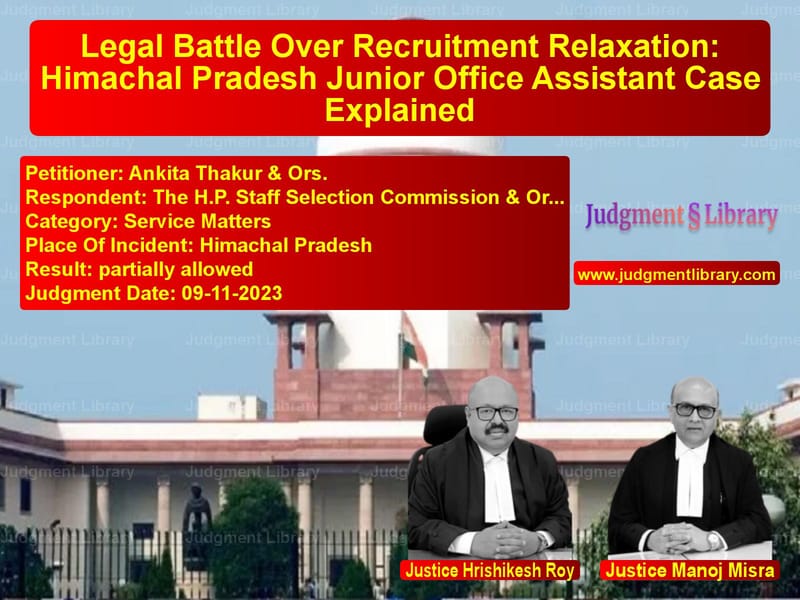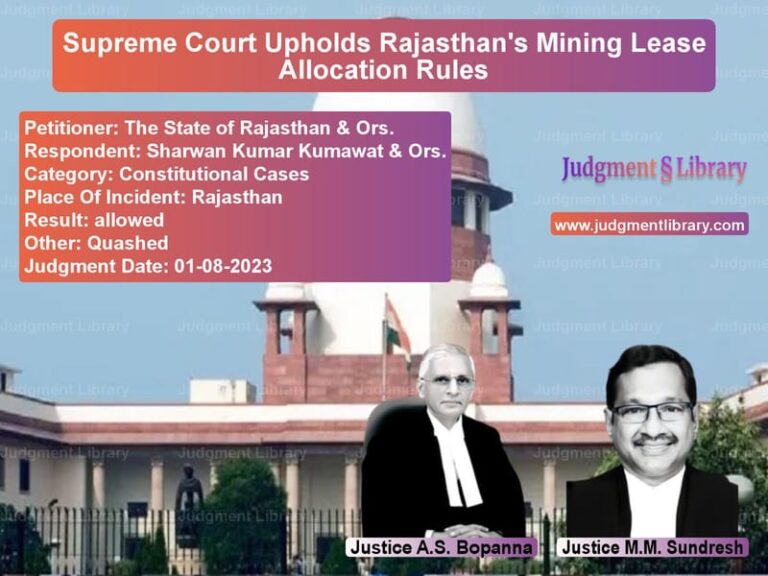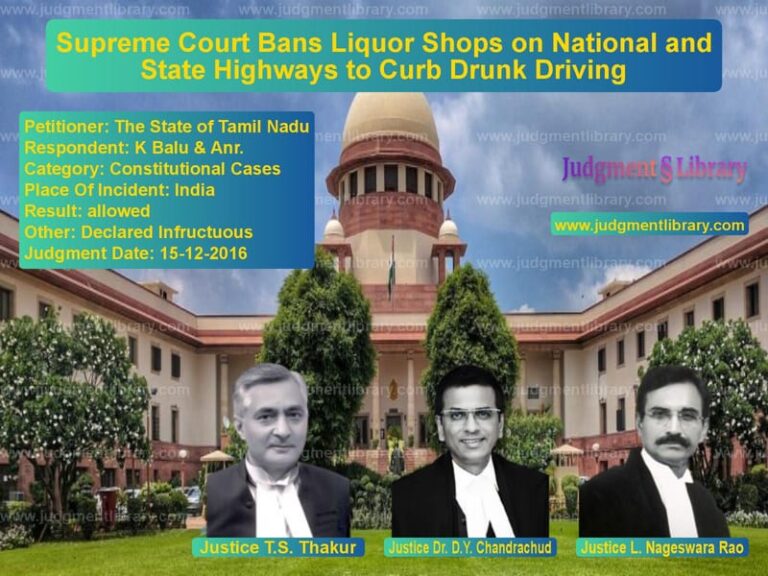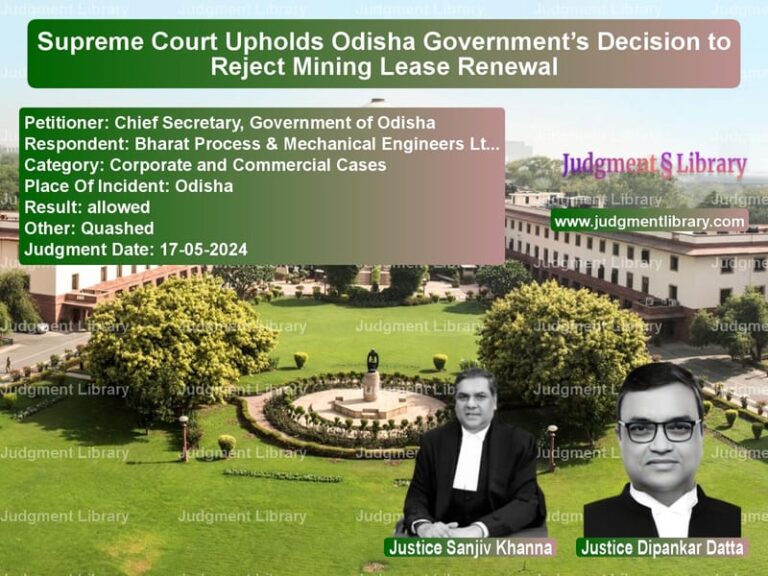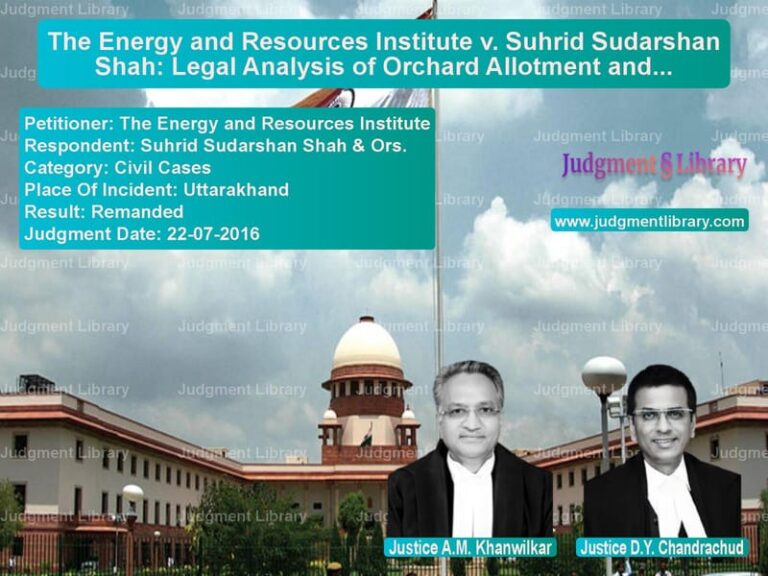Legal Battle Over Recruitment Relaxation: Himachal Pradesh Junior Office Assistant Case Explained
The Supreme Court of India recently adjudicated on a significant dispute concerning the recruitment process for the post of Junior Office Assistant (JOA) in the state of Himachal Pradesh. The legal battle spanned multiple years and involved issues of qualification relaxations, procedural fairness, and adherence to statutory norms in public employment. The case primarily revolved around whether the relaxation of eligibility criteria after the issuance of recruitment advertisements was legally sustainable. The judgment provides clarity on the permissible scope of such relaxations and upholds the principles of fairness and transparency in public recruitment.
Background of the Case
The recruitment for the post of Junior Office Assistant (IT) was initially announced by the Himachal Pradesh Staff Selection Commission through three different advertisements over several years:
- First Advertisement (Post Code 447): Issued on 13.02.2015 for 1421 vacancies.
- Second Advertisement (Post Code 556): Issued on 18.10.2016 for 1156 vacancies.
- Third Advertisement (Post Code 817): Issued on 21.09.2020 for 1869 vacancies.
The primary legal dispute arose from the government’s decision to relax eligibility conditions for candidates who did not possess the prescribed qualifications. The initial requirement mandated candidates to have a 10+2 qualification along with a one-year diploma in Computer Science, Computer Application, or Information Technology from a recognized institution or university. However, following legal challenges and administrative considerations, the government issued a relaxation order on 21.08.2017, allowing candidates from unrecognized institutions or holding similar but non-identical qualifications to be considered eligible.
Arguments by the Petitioners
The petitioners, who challenged the relaxation order, raised several crucial points:
- The relaxation order was issued after the last date for submitting applications, violating legal principles established by the Supreme Court.
- The 2014 Recruitment Rules were unambiguous, and there was no necessity for relaxation.
- The relaxation unfairly benefited candidates who did not originally qualify, reducing the chances of selection for those who met the eligibility criteria.
- The government failed to widely publicize the relaxation, denying other similarly situated candidates the opportunity to apply.
- The recognition of private institutions under the relaxation order lacked legal backing, making the entire process arbitrary and unfair.
Arguments by the Respondents
The respondents, including the Himachal Pradesh government and the Staff Selection Commission, countered these claims with the following justifications:
- The relaxation was necessary due to ambiguities in the 2014 Rules, particularly concerning the recognition of institutions.
- The government possessed the authority to relax eligibility conditions under Rule 18 of the 2014 Rules.
- Many candidates who benefited from the relaxation had successfully cleared written and typing tests, proving their merit.
- The relaxation was issued in response to judicial directives and administrative needs, ensuring broader participation in the recruitment process.
Key Observations by the Supreme Court
The Supreme Court meticulously analyzed the legal and procedural aspects of the case. The Court made several key observations:
- Relaxing eligibility criteria after the last date of application violated established legal norms.
- The government’s failure to widely publicize the relaxation order breached the principle of equal opportunity.
- The qualifications prescribed in the 2014 Rules were specific, and there was no inherent ambiguity requiring relaxation.
- The relaxation order indirectly granted recognition to certain institutions without due process, rendering it legally unsound.
- The extension of relaxation to Post Code 556 based on prior relaxations for Post Code 447 was unjustified.
Final Judgment and Directives
Based on its findings, the Supreme Court issued the following directives:
- The relaxation order dated 21.08.2017 was invalid and could not be applied to ongoing or future recruitment processes.
- The merit list for Post Code 556 must be redrawn strictly in accordance with the 2014 Rules, excluding candidates who were deemed eligible only due to the relaxation order.
- The recruitment process for Post Code 817 would proceed under the 2020 Rules, and previously carried-forward vacancies from Post Code 556 would not be segregated for separate treatment.
- Appointments already made under Post Code 447 would not be disturbed, considering the length of time that had passed and operational challenges.
This judgment reaffirms the principle that recruitment rules must be strictly adhered to and that any relaxation must be explicitly mentioned in recruitment notifications and widely publicized to ensure fairness. The ruling sets a precedent for future cases involving recruitment relaxations, reinforcing the importance of transparency and adherence to statutory norms in public employment.
Petitioner Name: Ankita Thakur & Ors..Respondent Name: The H.P. Staff Selection Commission & Ors..Judgment By: Justice Hrishikesh Roy, Justice Manoj Misra.Place Of Incident: Himachal Pradesh.Judgment Date: 09-11-2023.
Don’t miss out on the full details! Download the complete judgment in PDF format below and gain valuable insights instantly!
Download Judgment: ankita-thakur-&-ors.-vs-the-h.p.-staff-selec-supreme-court-of-india-judgment-dated-09-11-2023.pdf
Directly Download Judgment: Directly download this Judgment
See all petitions in Employment Disputes
See all petitions in Recruitment Policies
See all petitions in Public Sector Employees
See all petitions in Termination Cases
See all petitions in Judgment by Hrishikesh Roy
See all petitions in Judgment by Manoj Misra
See all petitions in partially allowed
See all petitions in supreme court of India judgments November 2023
See all petitions in 2023 judgments
See all posts in Service Matters Category
See all allowed petitions in Service Matters Category
See all Dismissed petitions in Service Matters Category
See all partially allowed petitions in Service Matters Category

